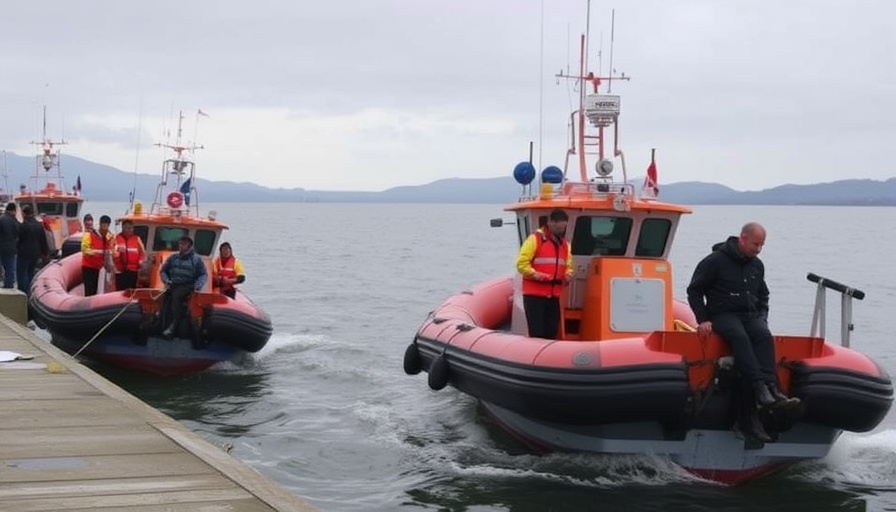
The Weather Controversy: Small Boats and Immigration Policy
In a surprising twist regarding the rising number of small boat arrivals in the UK, Conservative officials have dismissed claims made by the Home Office that favorable weather conditions have led to an increase in crossings. This response emerged amid growing tensions surrounding immigration policy and border control, illuminating the ongoing debate on how external factors, such as climate, play a role in global migration trends.
What Are the Facts Behind This Discussion?
The Home Office recently published a report suggesting a direct correlation between the good weather experienced over the past year and the increase in small boat crossings in the UK. However, critics, including Conservative MP Chris Philp, argue that blaming the weather is an excuse for the government's failure to handle the immigration crisis effectively. Philp's remarks highlight a growing discourse on whether blaming natural phenomena for political challenges is a valid strategy.
Looking at Historical Context and Policy Impact
This situation isn't unique to the UK. Several countries, especially in Europe, have faced similar challenges with migration influenced by improved weather conditions, especially during the summer months. Historical perspectives suggest that economic turmoil, political unrest, and other significant factors often have a more pronounced effect on migration patterns than climate. Understanding the interplay of these factors can shift how policymakers approach border management.
Social Connections: Why This Issue Matters
This growing influx of migrants is not only a political issue but also a deeply social one. Communities especially in coastal regions often find themselves divided on the topic of immigration. Some residents welcome the newcomers, seeing potential for cultural enrichment and economic growth, while others express concerns regarding overpopulation and strain on local resources. Navigating these differing opinions is increasingly vital for fostering social cohesion.
Future Implications for Immigration Policy
The ongoing debates around this topic suggest a crucial need for the government to rethink its strategy on managing migration. Instead of using external factors, such as weather or economic conditions, as scapegoats, there is an opportunity for a more comprehensive approach that addresses the root causes of migration. With climate change anticipated to affect global migration patterns further in the coming years, preparation and adaptability will be key to fostering resilience in policies.
In light of these insights, it's vital to understand the broader implications of migration and the policies that govern it. As discussions continue to evolve on the international stage, stakeholders are encouraged to stay informed and engaged with developments surrounding immigration, societal impacts, and policy changes.
 Add Row
Add Row  Add
Add 




 Add Row
Add Row  Add
Add 



Write A Comment